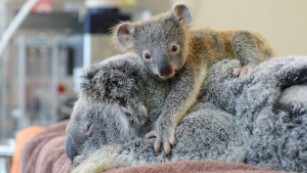My father-in-law was admitted to the hospital in the spring of 2014. He almost died there. For the previous week or so, he had been complaining of severe back pain, but laboratory tests done at the hospital revealed the true cause of his pain: sepsis, a staph infection that had taken hold in his blood.
The next few months were extremely difficult for all of us. At first, we weren’t sure if he would survive at all. Then, we weren’t sure if he would ever regain his strength, considering his age, which was 75. He required a daily intravenous injection of antibiotics to kill off the bacteria, which drained him considerably. Although the situation was bad, it could certainly have been worse: he could have contracted an MRSA, or Methicillin Resistant Staphylococcus Aureus infection, in which case his death would have been certain.
Statistics now show that 23,000 people in the US die of these antibiotic-resistant infections each year. A recent report from the Review on Antimicrobial Resistance warned that superbugs could kill one person every three seconds across the world by the year 2050, unless new, more effective antibiotics are found.
Enter our unlikely new saviour, the Tasmanian devil. Researchers in Sydney, Australia have found six peptides in Tasmanian devil milk, and one of them has shown a particularly high effectiveness in killing the superbug MRSA. Early tests show it can also kill Vancomycin-resistant enterococcus, another resistant bug, as well as fungi, called Candida, which are commonly involved in skin infections.
Considering the success of the peptides in Tasmanian devil milk, researchers will now explore the milk of other marsupial animals to see if more good news can be found.
Marsupials are the group of animals which carry their newborn babies in skin pouches. The babies are small and under-developed, and the pouches are filled with bacteria. Scientists suspect that without these extra bacteria-fighting peptides in their mother’s milk and in the skin of their mother’s pouches, most baby marsupials wouldn’t survive, which makes them potentially rich sources for other anti-bacterial peptides.
Although tests are still underway, scientists are hoping that this discovery could lead to new antibiotics in the next few years. In the meantime, the natural antibiotic effects of many herbs may provide some help as we struggle to keep infectious bacteria at bay. Though not as powerful as antibiotic drugs, they are less damaging to our liver and kidneys, and can therefore be taken for longer periods of time to stamp out infections before they have a chance to take hold.
Most of the herbs in our liver/gallbladder tinctures and in our Chrysanthemum tincture have anti-bacterial actions that can help to nip infections in the bud and prevent colds and flus from spreading. They may not be as effective in killing MRSAs as Tasmanian devil milk, but they’re the best we’ve got for now.
About the Author: Rebecca Wong has a BA in English Literature from the University of Waterloo and has been working in the herbal business since 2000. She studied at the Ontario College of Traditional Chinese Medicine under respected authorities Paul Des Rosiers and Vu Le, and graduated from the East West School of Planetary Herbology under Michael Tierra. She received training as a yoga teacher at The Branches in Kitchener/Waterloo, and therapeutic yoga teacher training from the School for Somatic Soulwork under Deniz Aydoslu. She now teaches yoga for anxiety, depression and burnout at Rebecca's Restful Yoga Studio in Toronto.

